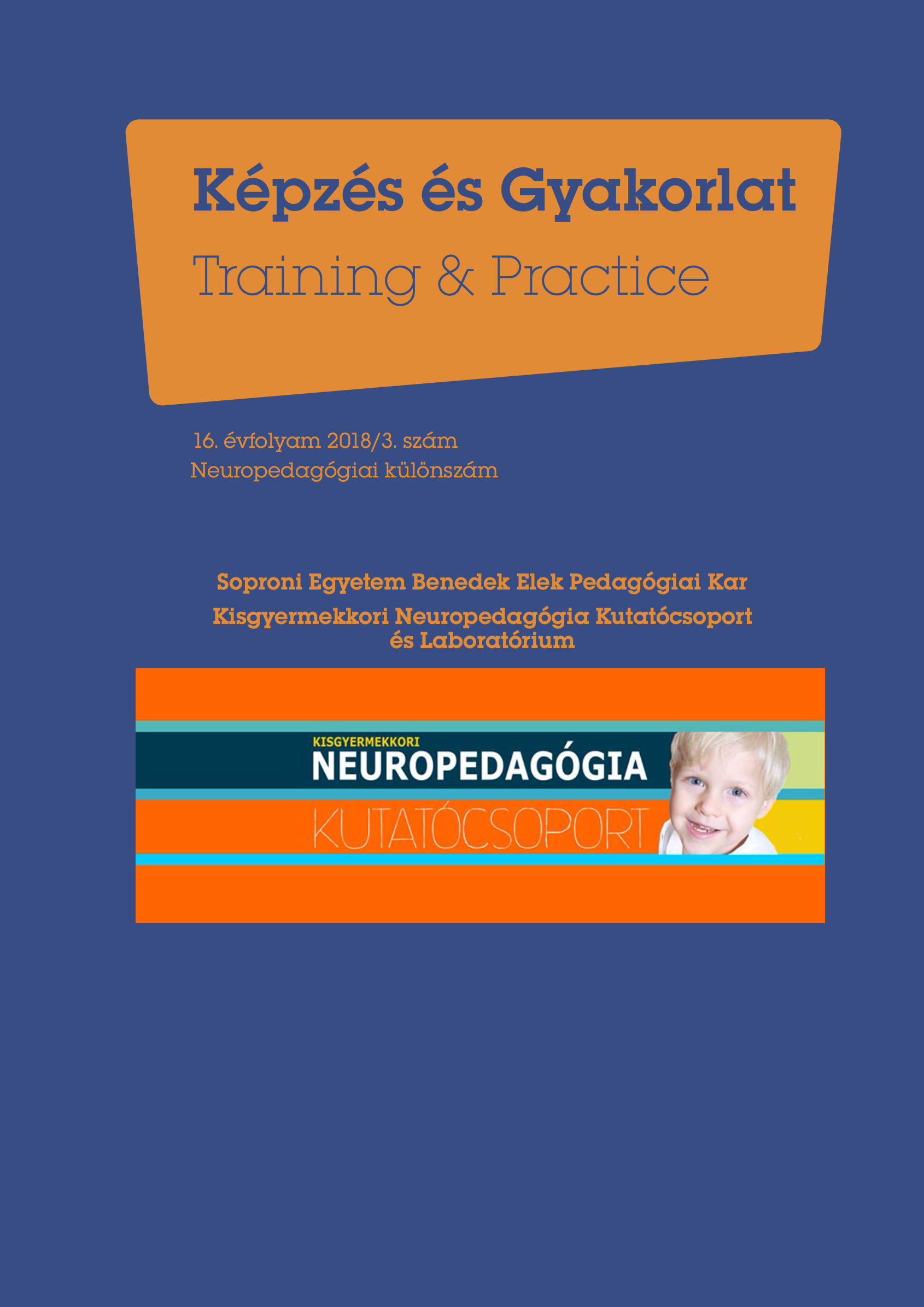Neuropedagogy in Early Childhood in Hungary: Foundations and Micro-investigation
DOI:
https://doi.org/10.17165/TP.2018.3.8Kulcsszavak:
brain development, constructivism, kindergarten, neuropedagogy, pedagogical approachesAbsztrakt
Neuropedagogy is an emerging field of study in Hungary. This article provides an overview on the professional directions and works in which The International Research Team and Laboratory of Neuropedagogy (NeuPedLab) at the Sopron University, Benedek Elek Faculty of Pedagogy, in Sopron, Hungary is engaged. First, the article reports on the theoretical approaches of neuropedagogy in Hungarian early childhood education. In the context of international research, the article also reports on the findings of a pilot study on Hungarian early childhood teachers’ understanding and willingness to use information about brain development in their everyday practice. The article concludes with highlights about the importance of infusing knowledge about the brain and pedagogy to maximize young children’s development.
Hivatkozások
Ádám, Gy. (2004). A rejtőzködő elme. Budapest: Vince Kiadó.
Bergen, D., & Woodin, M. (2017). Brain research and childhood education. Implications for educators, parents and society. New York: Routledge. DOI: https://doi.org/10.4324/9781315465173
Bredekamp, S., & Copple, C. (2015). Developmentally appropriate practice (DAP) in early childhood programs. (6th edition) Washington, D. C: National Association for the Education of Young Children (NAEYC).
Borbás, M. L. (2017). Kisgyermekkori neuropedagógia. A kisgyermekkori agyfejlődés megtámogatása az óvodai nevelésben. Sopron: SOE BPK, Kézirat.
Csíkszentmihályi, M. (2010). Flow – Az áramlat – A tökéletes élmény pszichológiája. Budapest: Akadémiai Kiadó.
Deli, É. – Buda, M. (2007). Tanulástanítás? Élvezetes tanulás. Budapest: Dinasztia Tankönyvkiadó.
Farmer,-Dougan, V., & Alferink, L. (2013). Brain development, early childhood and brain-based education: A critical analysis. In Weassreman, L & Zambo, D. (Eds.) Early childhood and neuroscience - links to dedveloment and learning. New York: Springer. DOI: https://doi.org/10.1007/978-94-007-6671-6_5
Fraiberg, S. (2014). Varázsos évek. Hogyan értsük meg és miként kezeljük a korai gyerekkor problémáit. Budapest: Park Könyvkiadó.
Howard-Jones, P.A.(2011). From brain scan to lesson plan. Psychologist, 24(2). 110-113. McDevitt, T. & Ormrod, J. (2016). Child development and education (6rd Ed.), New York: Prentice-Hall.
Nahalka, I. (2002). Hogyan alakul ki a tudás a gyermekekben? Konstruktivizmus és pedagógia. Budapest:Nemzeti Tankönyvkiadó.
Nouri, A. (2016). The basic principles of research in neuroeducational studies. International Journal of Cognitive Research in Science, Engineering and Education. 4(1). 59-66. DOI: https://doi.org/10.5937/IJCRSEE1601059N [Retrieved from http://www.ijcrsee.com/index.php/IJCRSEE/article/view/41/60]
Piaget, J. (1970). Válogatott tanulmányok. Budapest: Gondolat Kiadó.
Zambo, D. (2008). Childcare workers’ knowledge about brain and developmentally appropriate practice. Early Childhood Education Journal. 35, 571-577. DOI: https://doi.org/10.1007/s10643-007-0223-2
Zambo, D., & Zambo, R. (2011). Teachers’ beliefs about neuroscience and education. Teaching Educational Psychology, 7(2). 25-41.
Zambo, D., & Zambo, R. (2012) Beliefs of college students inside and outside education. Education Quest, 9(1). 87-93.
Zambo, D., Zambo, R., & Sidlik, L. (2013). Preservice teachers’ perception of neuroscience, medicine and students with ADHD. Journal of Excellence in College Teaching, 24(3). 51-67.
Letöltések
Megjelent
Folyóirat szám
Rovat
License
Copyright (c) 2018 Varga László, Szécsi Tünde

This work is licensed under a Creative Commons Attribution-NonCommercial-NoDerivatives 4.0 International License.












